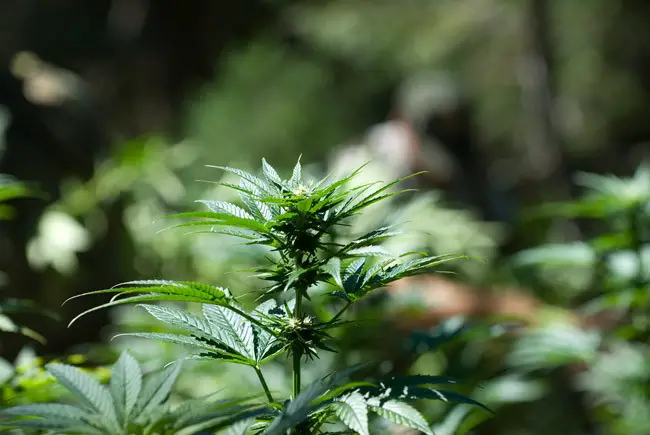
Five dispensing organizations selected by state officials promised lawmakers Wednesday they would meet a deadline next month to get medical-marijuana production off the ground, despite legal challenges that could threaten their licenses.
The Senate Regulated Industries Committee received updates from the state Office of Compassionate Use and the five dispensing organizations — one in each region of the state — about carrying out a 2014 law that allows non-euphoric types of medical marijuana. Lawmakers heard that the businesses are ready to start growing as soon as they get authorization from the Department of Health.
More than a dozen challenges — in four of the state’s five regions — are pending, with hearings in the cases scheduled from March through late July.
Office of Compassionate Use Director Christian Bax told the panel that the low-THC marijuana products could be available to eligible patients as early as September.
The department is holding to a February deadline to move forward with production because none of the challengers — or winners, who are expected to invest millions of dollars to grow, process and dispense the pot — has requested an injunction to stop the process, Bax said.
“Our priority is, was and will remain to ensure that all of this is carried out as quickly and as safely as possible for Florida’s patients,” Bax told the committee.
The dispensing organizations have until Feb. 7 to request authorization to begin cultivating the marijuana products. The 2014 law has been delayed because of previous legal challenges, creating frustration for lawmakers who approved the non-euphoric marijuana at the urging of parents of children with severe epilepsy. The low-THC marijuana is believed to end or dramatically reduce life-threatening seizures for those patients.
“Here we are, two years later. We’re not there yet,” Committee Chairman Rob Bradley, R-Fleming Island, said. “I’m sorry, to those families. We’re going to do everything we can this session to fix that.”
Bradley blamed the delay in getting the state’s marijuana industry up-and-running on “individuals outside the control of the department,” referring to the losing applicants who challenged the awarding of the licenses, selected by a three-member panel of state officials in late November.
Bradley questioned representatives of the five dispensing organizations about the types of products they intend to sell to patients.
The “routes of administration” will include gel capsules, vaporizable liquids, transdermal patches, tinctures, sprays and topical creams, the dispensing organization representatives said.
But Robert Wallace of Chestnut Hill Tree Farm in Alachua County, the winner of the Northeast region license, would not specify what kind of products his organization plans to sell because of a pending legal challenge.
Wallace said he is working with University of Florida scientists and the pharmaceutical industry to develop a proprietary technology.
“We believe it will be a revolutionary new product,” Wallace said.
Alpha Foliage, affiliated with Surterra Therapeutics, plans to have products available for patients in June, Surterra President Susan Driscoll told the committee. The company is the only dispensing organization that has asked health officials for permission to begin cultivating.
Once the health department authorizes cultivation, the dispensing organizations have 210 days to make the products available to patients. It will be up to doctors to decide the types of products patients can use.
Most of the dispensing organizations said they planned to focus on home delivery of the products, but Bax said there will be a total of 15 dispensaries located throughout the state. The dispensaries will be within a one- to two-hour drive for most Floridians, he said.
Bradley said some of his constituents were worried about what the dispensaries would look like.
“They don’t want a pot shop on every corner with it looking cheesy and like something that’s embarrassing,” he said. “This is a serious matter for people with serious illnesses and we would like it to look appropriate.”
Kim Rivers, representing Northwest region winner Hackney Nursery, said her company’s dispensary will look like a medical clinic.
“There’s not going to be any large neon flashing marijuana leaf on the sign,” she said.
–Dara Kam, News Service of Florida





























Leave a Reply